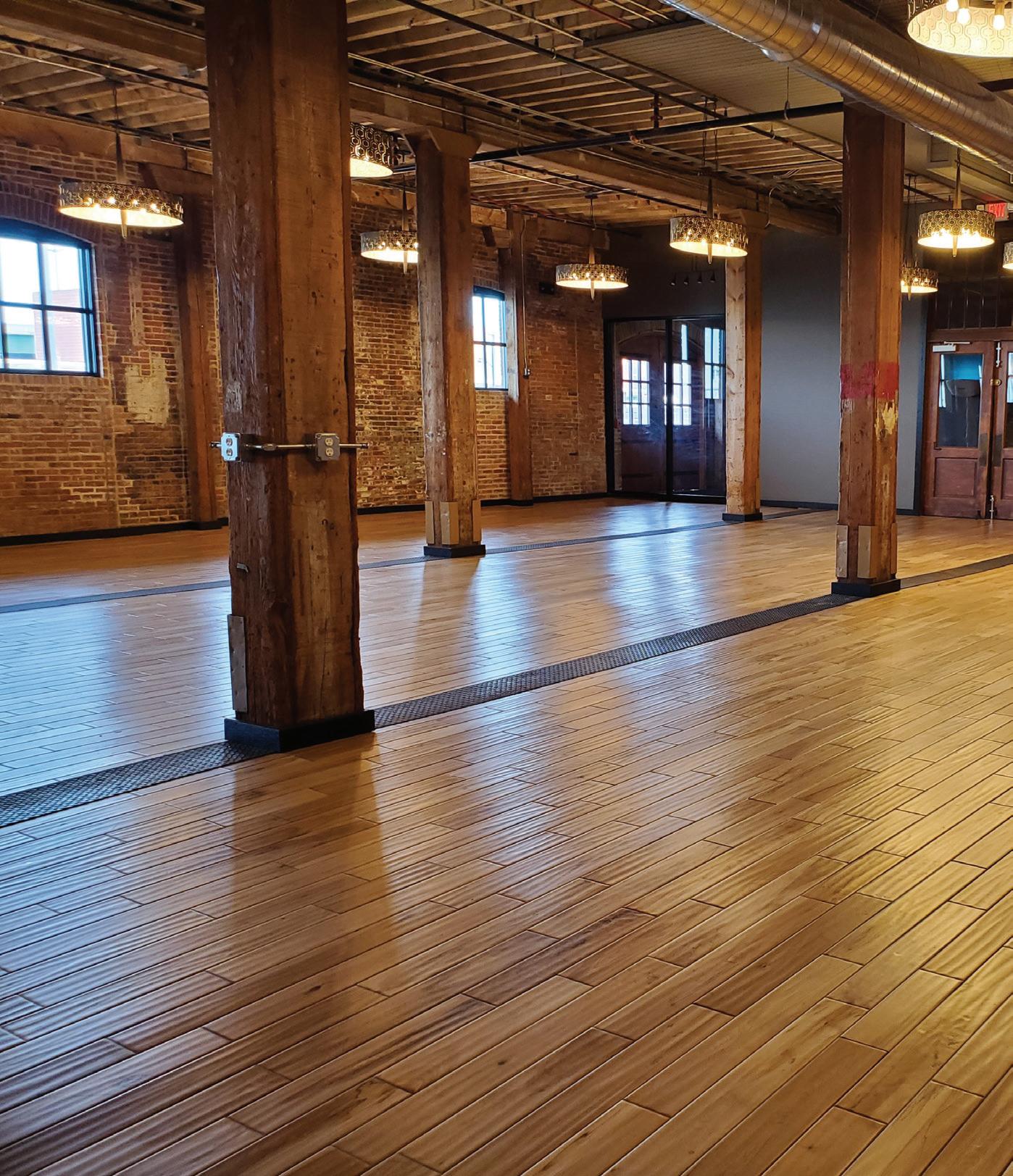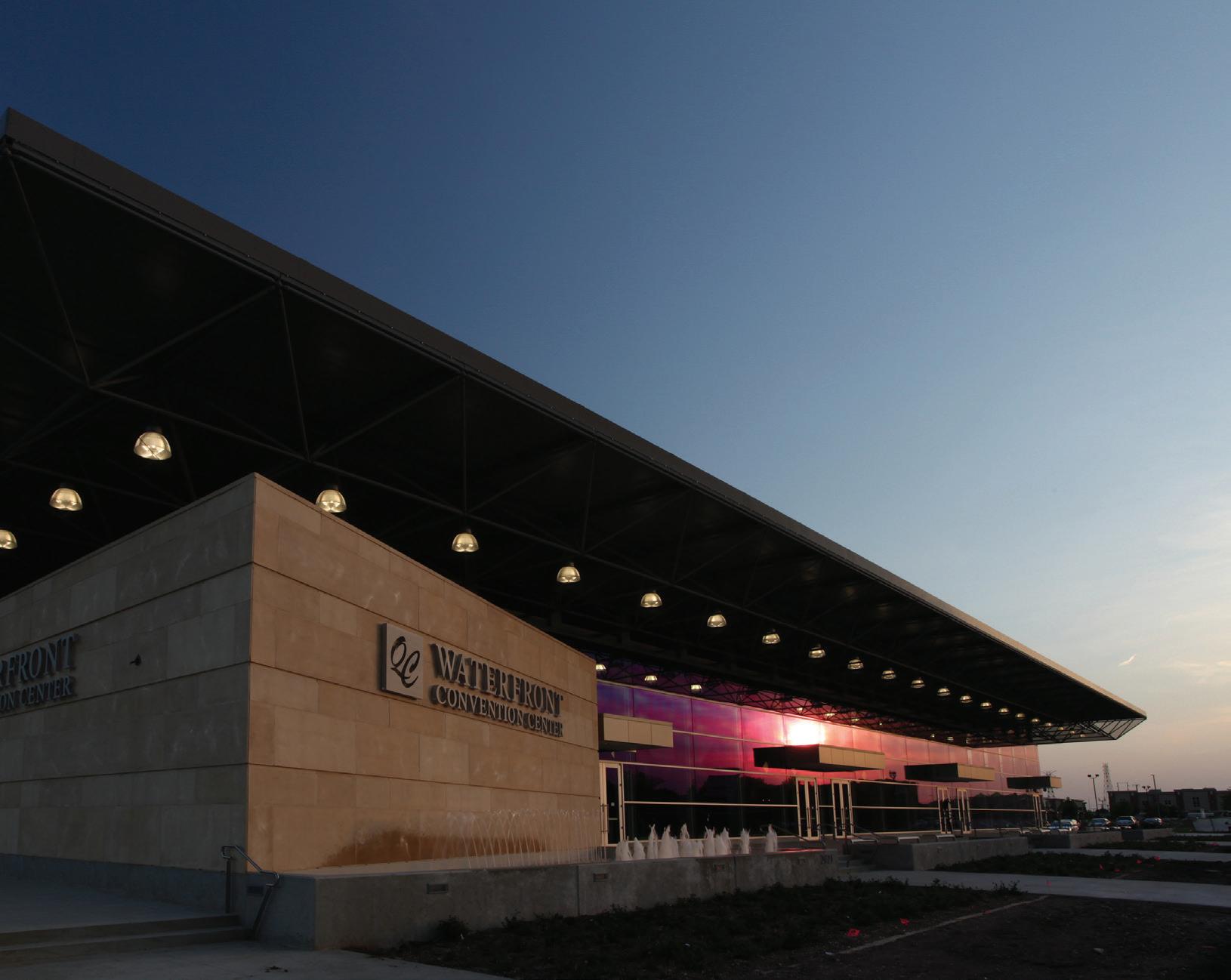
2 minute read
LIQUID ASSETS
BY RACHEL CRICK
WATERFRONT MEETING DESTINATIONS — from grand riverfront hotels to waterside venues — can give any meeting a more laidback vibe. And for a landlocked state, Iowa has a surprising number of liquid assets. It’s the only state bordered by two rivers, and many of its cities sprang up along the banks of the Mississippi and Missouri. Combine those river cities with the resorts and resort towns on its many lakes, and Iowa becomes a state rich in waterfront meeting possibilities.
Davenport/Bettendorf
The Quad Cities comprise five cities and numerous small towns and villages in Eastern Iowa and Western Illinois, with two major metros on each side of the Mississippi River. Davenport and Bettendorf, on the Iowa side, are about five miles apart, with plenty of accommodations for meetings. In downtown Davenport, there are 431 hotel rooms, including rooms at the historic Hotel Blackhawk, The Current Iowa and DoubleTree by Hilton Davenport. The Hotel Blackhawk is connected by skywalk to the city’s RiverCenter and its 100,000 square feet of meeting space, which includes the 33,400-square-foot Great River Hall and the 2,423-seat art deco-style Adler Theatre.
Adler Theatre is a 2,423-seat art deco-style theater in the Quad Cities.
CourtesyVisitQuadCities
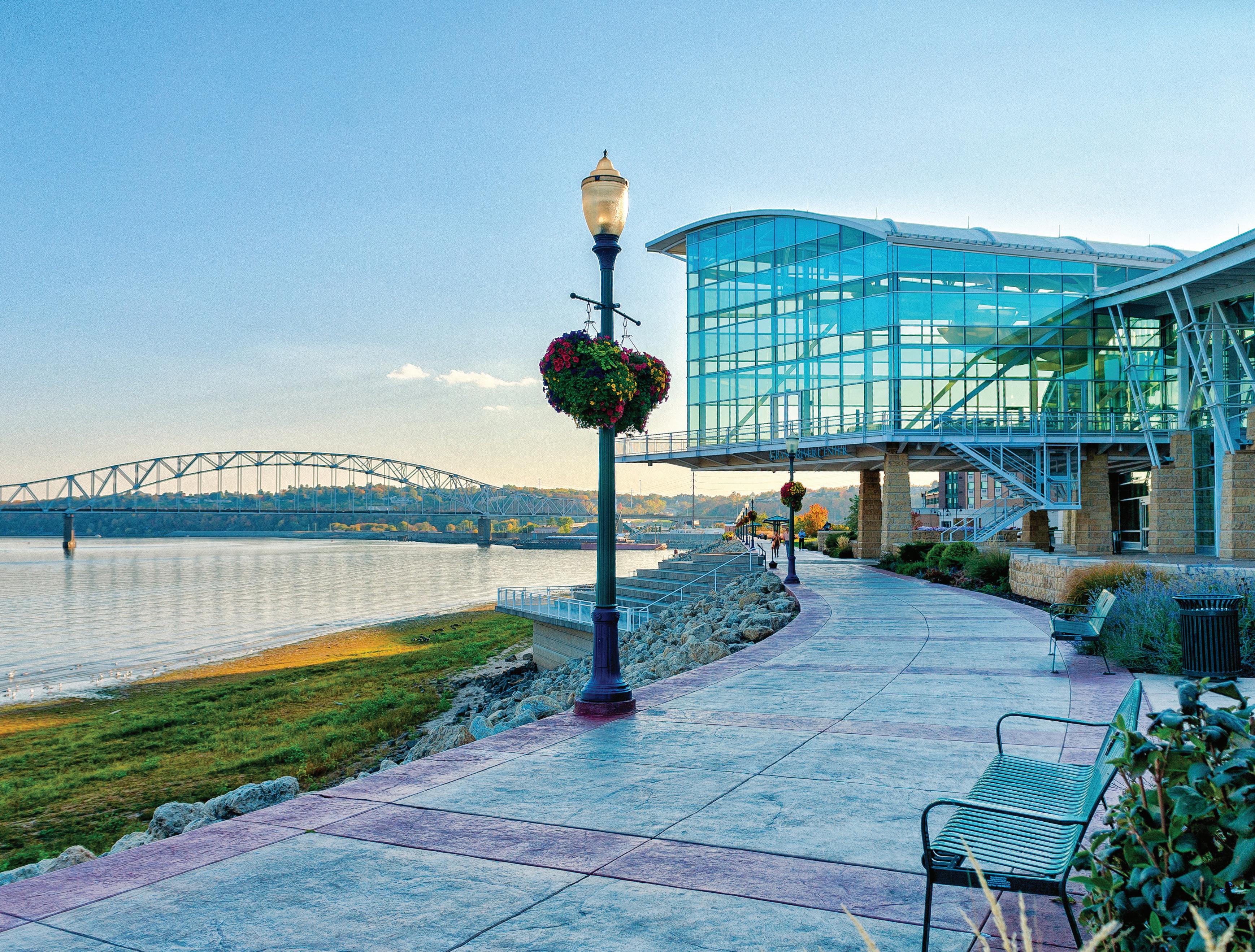
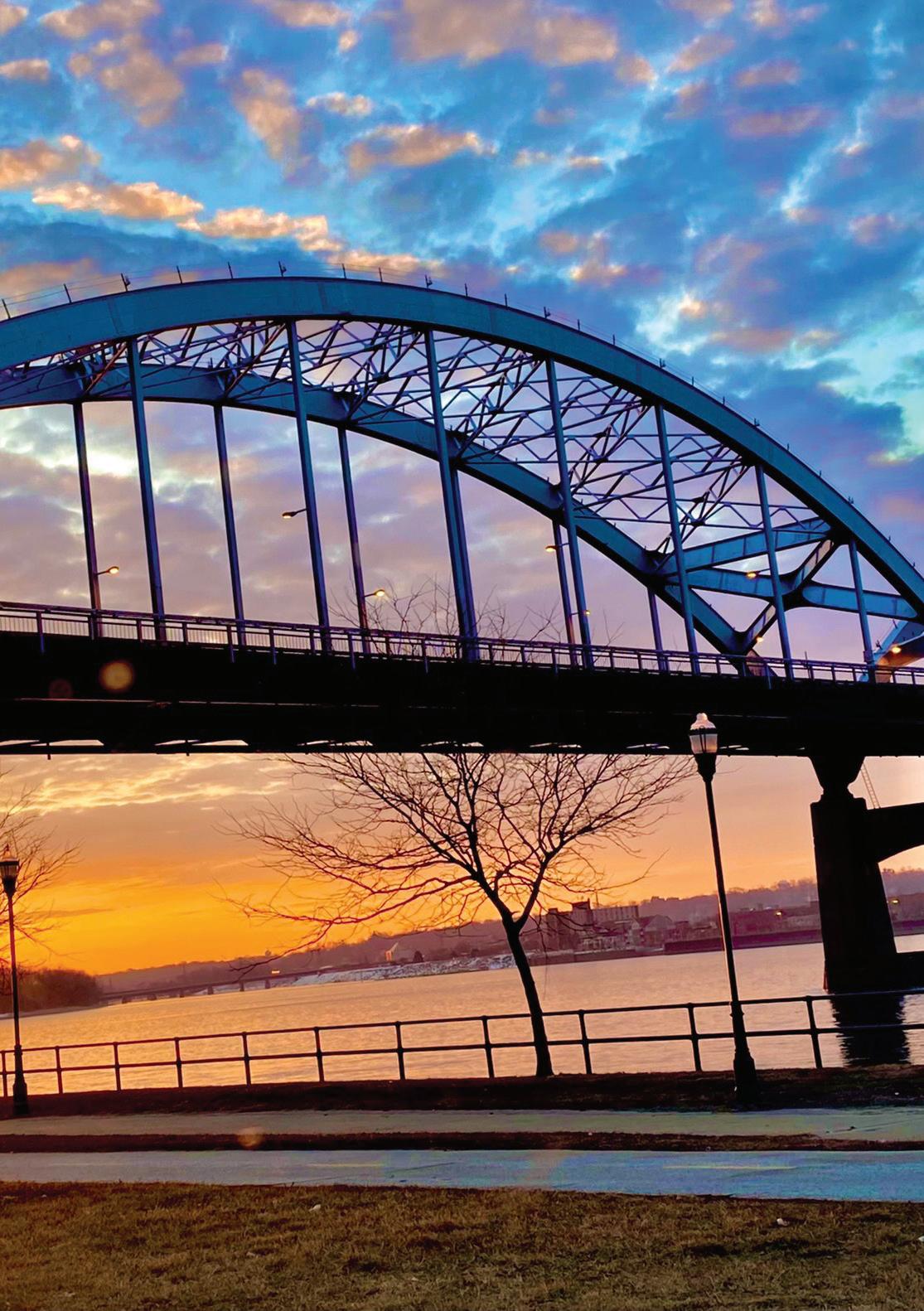
To the east, Bettendorf’s state-of-the-art meeting facilities include the Quad-Cities Waterfront Convention Center, with over 24,000 square feet of space for groups as large as 1,700. The convention center is connected by skywalk to Iowa’s largest hotel, the 509-room Isle Casino Hotel Bettendorf In addition to luxurious rooms, a casino and restaurants, the Isle has 15,000 square feet of meeting space and an attached marina.
“In the Quad Cities, each of our downtowns offer completely different experiences and amenities,” said Joan Kranovich, vice president of busi ness growth at Visit Quad Cities. “The uniqueness of our bi-state, multi-city destination adds to the fun vibe of our region.” visitquadcities.com
Dubuque
Founded by French fur-trader Julien Dubuque in 1833, Dubuque was Iowa’s first community. Once a hotspot for lead mining, this town on Iowa’s eastern border is now known for manufacturing and, of course, hospitality.
“Today people think of Dubuque as a tourist desti nation in the Midwest, definitely for families and busi nesses,” said Julie Kronlage, vice president of sales at Travel Dubuque.
Its position on the Mississippi River has much to do with that, and many of its meeting venues take good advantage of the riverside. In fact, the city’s largest meeting and event space, the Grand River Center, is in the Port of Dubuque, a riverside district on the east side of downtown. The center has 86,000 square feet and 13 meeting rooms and many of its spaces have generous views of the river. The Grand River Center is connected to the 193-room Grand Harbor Resort and its 1,200-square-foot meeting room. Four other hotels several blocks away have meeting space, including the 116-room Hilton Garden Inn at Q Casino, the 193room Holiday Inn Dubuque/Galena, and the Hotel Julien, a richly decorated, restored hotel with 133 rooms and 15,000 square feet of meeting space.
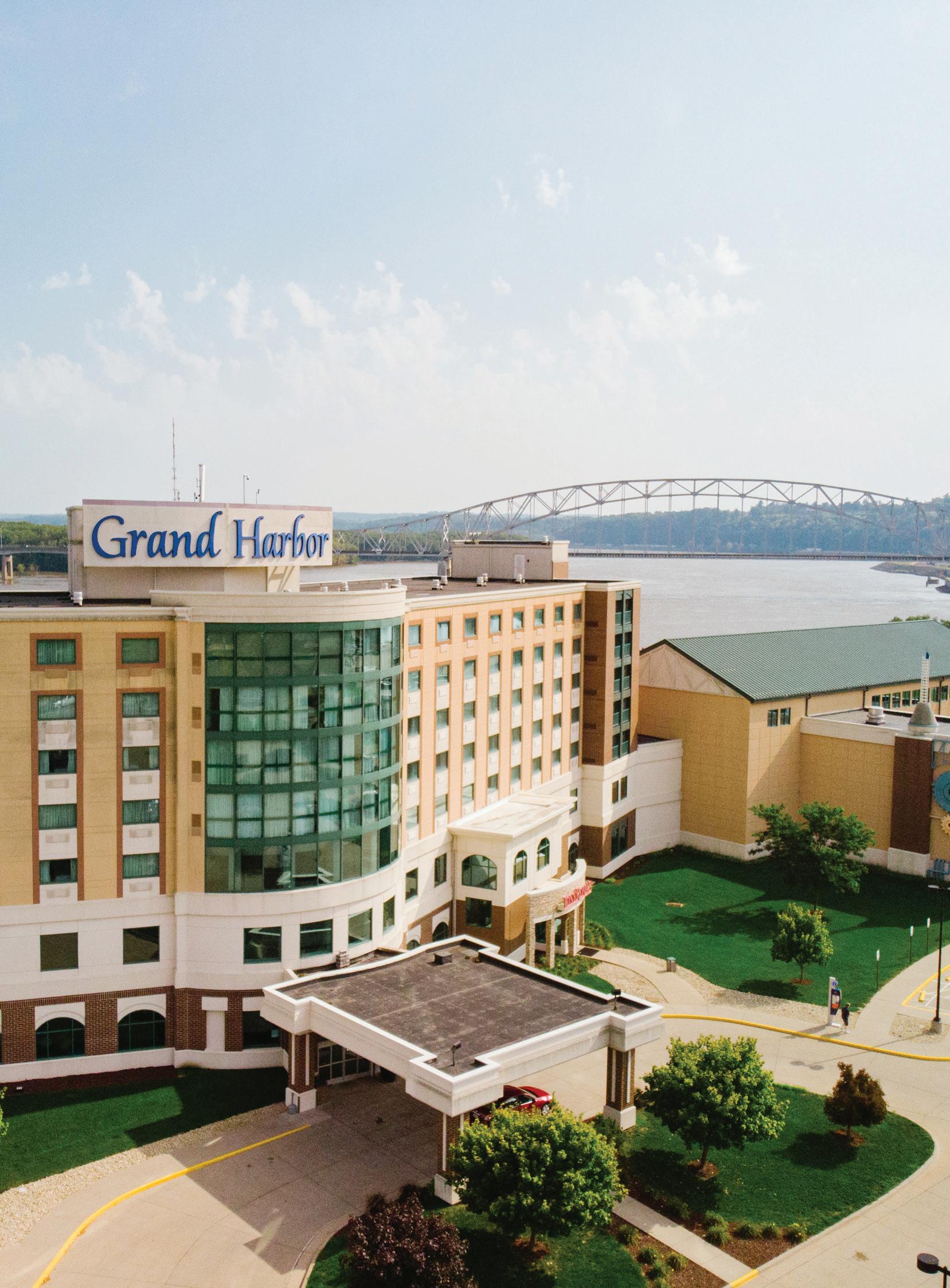
In the Historic Millwork District, a brick-paved, industrial revitalized district in downtown, restaurants and bars offer entertainment after business hours. A roomy ballroom there with on-site catering can be booked for events of up to 450 people. Another downtown option? The Smithsonian-affiliated Dubuque Museum of Art, where receptions can deliver art and hors d’oeuvres for up to 125 people.
traveldubuque.com
